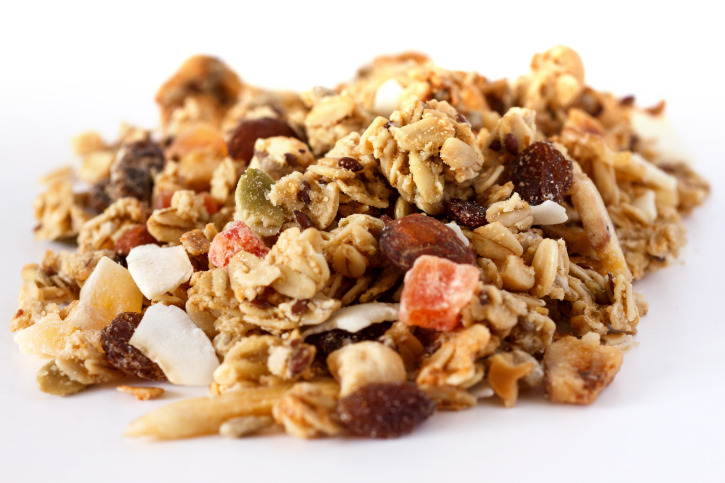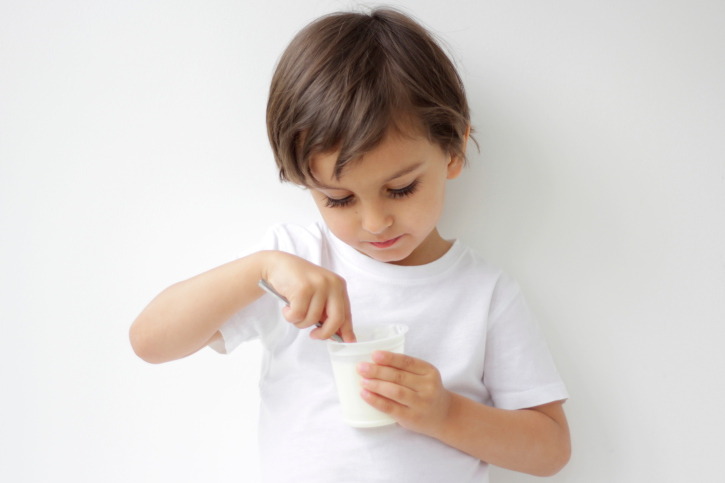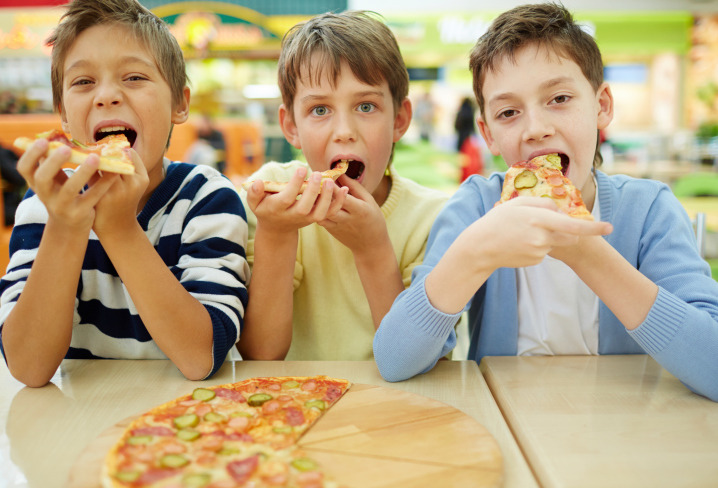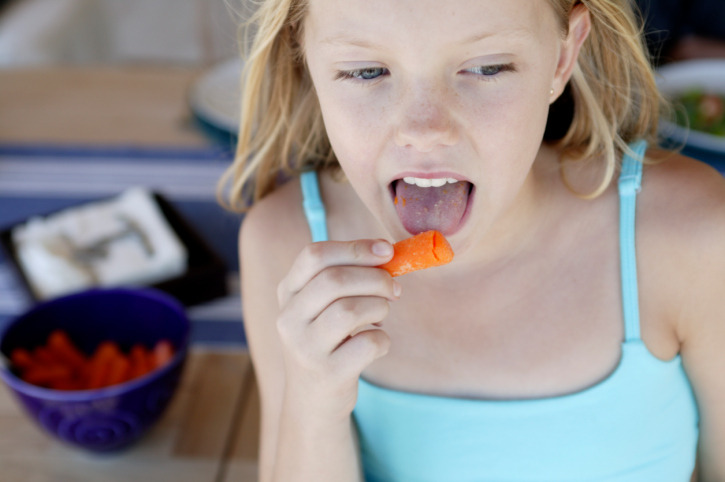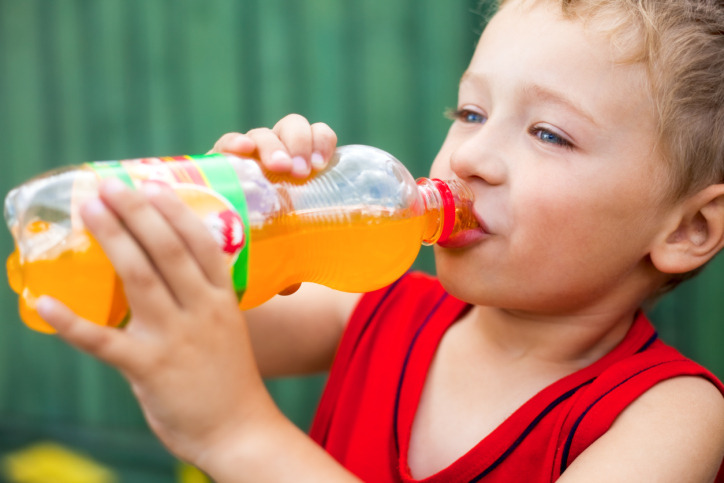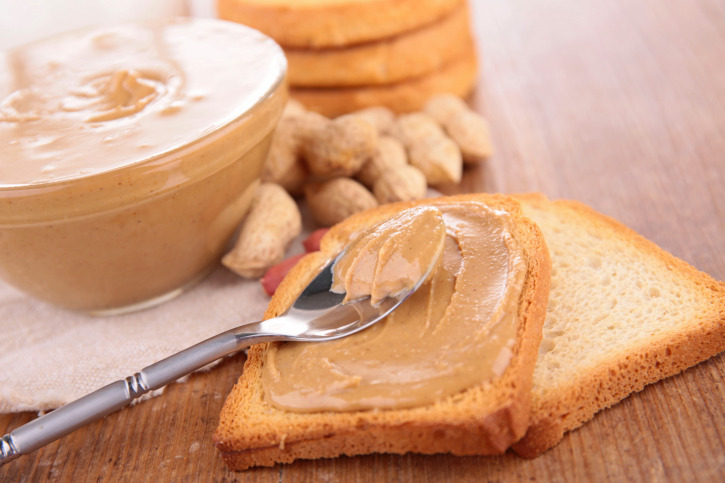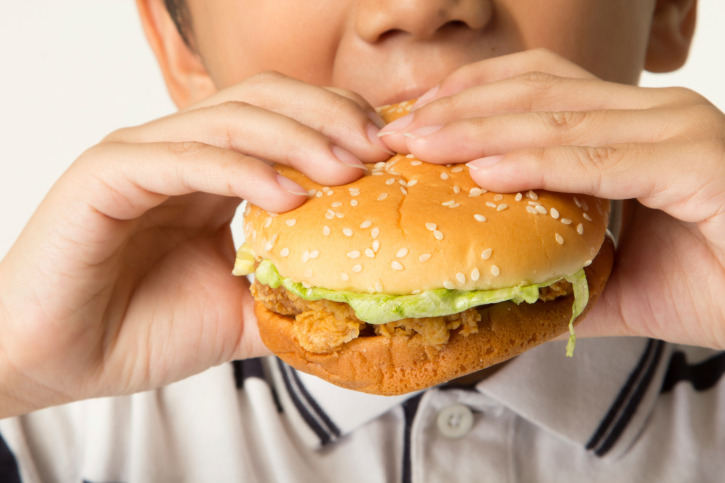Ways You Are Making Your Kids Fat
Like it or not, most unhealthy eating habits begin in the home, which means that is the best place to start improving a child's diet. If you find that you are making some of the common mistakes listed in the slideshow, it's probably time to revaluate the way you are feeding your children.
Feeding Kids Processed Snack Foods
"One recent study found that we burn about 50 percent more calories metabolizing whole foods versus processed foods. A processed snack habit may set up kids for an overweight or obese future."— Cynthia Sass, registered, author of the New York Times best seller S.A.S.S! Yourself Slim: Conquer Cravings, Drop Pounds and Lose Inches?
Forgetting to Be a Good Role Model
"Eating a wide variety of healthy foods yourself really is the best tool in your arsenal. Focus on setting a good example, not what your kids are eating! This gives children the time and environment needed to learn to become healthy, varied eaters. Let your child see you making health choices everyday. Give your child ample opportunity to eat fresh prepared meals at the family table. Studies show that when food is prepared in the home, there tends to be more fruits and vegetables served with less unhealthy fats, processed foods, and salt served."
— Jennifer A. Gardner
Issuing “Clean Your Plate” Demands
"This forces kids to eat when not hungry and, over time, interrupts a child's innate stop signal, one of the best protectors against future obesity. Instead of forcing a clean plate, ask your child if the tummy is full. If he or she says yes, it's game over, but you can still require the child to stay at the table."
— Jennifer A. Gardner
Making Desserts "Bad"
"Do not treat desserts as a reward or punishment. Rewarding kids with highly desirable food reinforces that desire while making the healthier choice less attractive, the exact opposite of what you want! In addition, rewarding does not encourage motivation to eat the food when not being bribed. Withholding sweets and treats, on the other hand, makes them highly coveted. Since children almost universally prefer sweets to other tastes, this is a dangerous game of roulette. Instead of withholding, offer a small amount of dessert to the entire family, reserving seconds for good mealtime behavior."
— Jennifer A. Gardner
Modeling On and Off Dieting
"Many of my adult clients grew up with moms who yo-yo dieted, so they learned a pattern of strict dieting, followed by either binge eating or rebound overeating. This can set up kids for a lifetime of struggling with diets and weight, rather than a lifetime of balanced, consistent healthy eating."
— Cynthia Sass
Not Ensuring That Kids Get Enough Enough Sleep
"Research shows that sleep is a critical component to good health and healthy weight. Our bodies can confuse the signs for hunger, thirst, and fatigue. Sometimes a child wanting food is actually tired or thirsty."
— Lauren Harris-Pincus, registered dietician of Nutrition Starring You
Not Teaching Kids About Hunger and Fullness Cues
"So-called 'healthy snacks' can turn into calorie overload without portion control. Items like trail mix, granola, veggie chips, pretzels and dried fruit are easy to overeat. Check the labels and make sure you serve your kids the appropriate amount. No eating straight from the bag!"
— Lauren Harris-Pincus
Offering Too Much Of A Good Thing
"For example, nuts or nut butter. They provide protein, healthy fats, and fiber, but two tablespoons of peanut or almond butter contribute around 200 calories. That's a lot of calories for a small volume of food. Enjoy them, just try to measure your desired serving before you spread or dole them out."
— Lauren Harris-Pincus
Pressuring Kids To Eat “Healthy”
"Pressuring kids to make all healthy choices can backfire. Kids become resistant to foods they would otherwise eat. And pressuring creates a negative feeding environment, decreasing the natural pleasure of eating, which may result in decreased appetite. Instead, have mainly healthy options available and forgo the nagging."
— Jennifer A. Gardner
Relying On Fast Food
"A recent study found that kids who ate the most fast food had test score gains up to 20 percent lower than those who didn't eat any. Fast food meals tend to be higher in calories and unhealthy fats, lower in produce, fiber and nutrients than quick meals prepared at home."
— Cynthia Sass
Restricting Less Healthy Options
"This only makes them more desirable, and does not coerce kids into making healthier choices. The key is to limit access (for everyone in the home), but not to ban. Studies show overly restricting food causes kids to overeat...when given the opportunity and to eat when not hungry — both resulting in unhealthy eating patterns."
— Jennifer A. Gardner
Serving Kids Soda Or Other Sweetened Beverages
"Sugary drinks are the #1 source of added sugar in the U.S. diet, and all that sugar is tied to obesity, as well as health risks and lower nutrient intakes. Also, statistically, diet soda drinkers weigh even more than those who down regular. This may be because artificial sweeteners may spur a sweet tooth and disrupt normal appetite regulation. Stick with plain water instead, flavored with just a splash of 100-percent fruit juice for flavor if needed."
— Cynthia Sass
Soothing Emotions With Food
"Many of my adult clients were taught by their parents and caregivers to turn to food to cope with emotions, from celebration to sadness. This can be an incredibly difficult pattern to break, and it undoubtedly leads to eating in excess of the body's ideal needs. In fact, this is probably the #1 barrier most of my clients face who are trying to lose weight."
— Cynthia Sass
Using Food As A Babysitter
"Here, eat this while mom finishes xyz.' As parents, we've all done it, but this can lead to unhealthy food behaviors. In that situation, it's usually not the most nutritious choice, and is most likely high in refined carbs and/or sugar."
— Lauren Harris-Pincus







